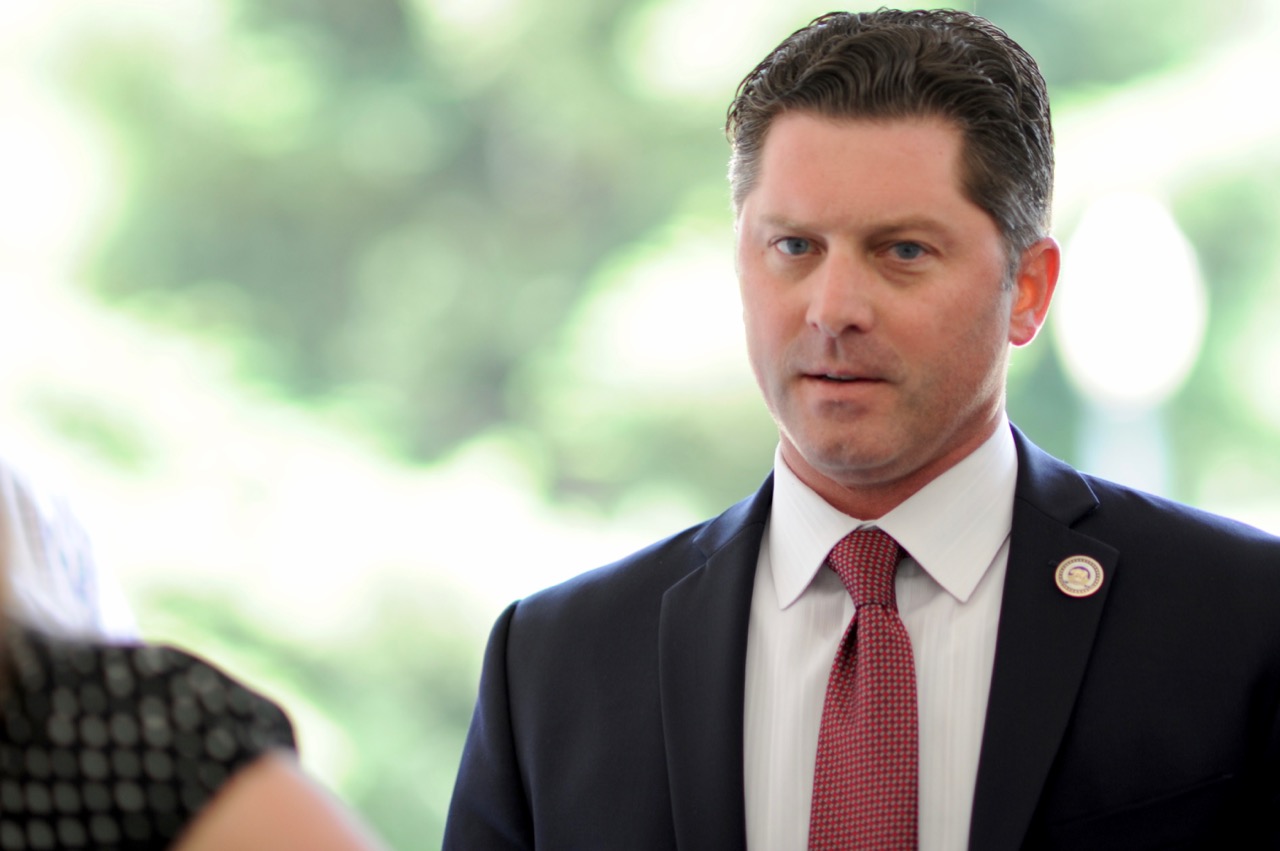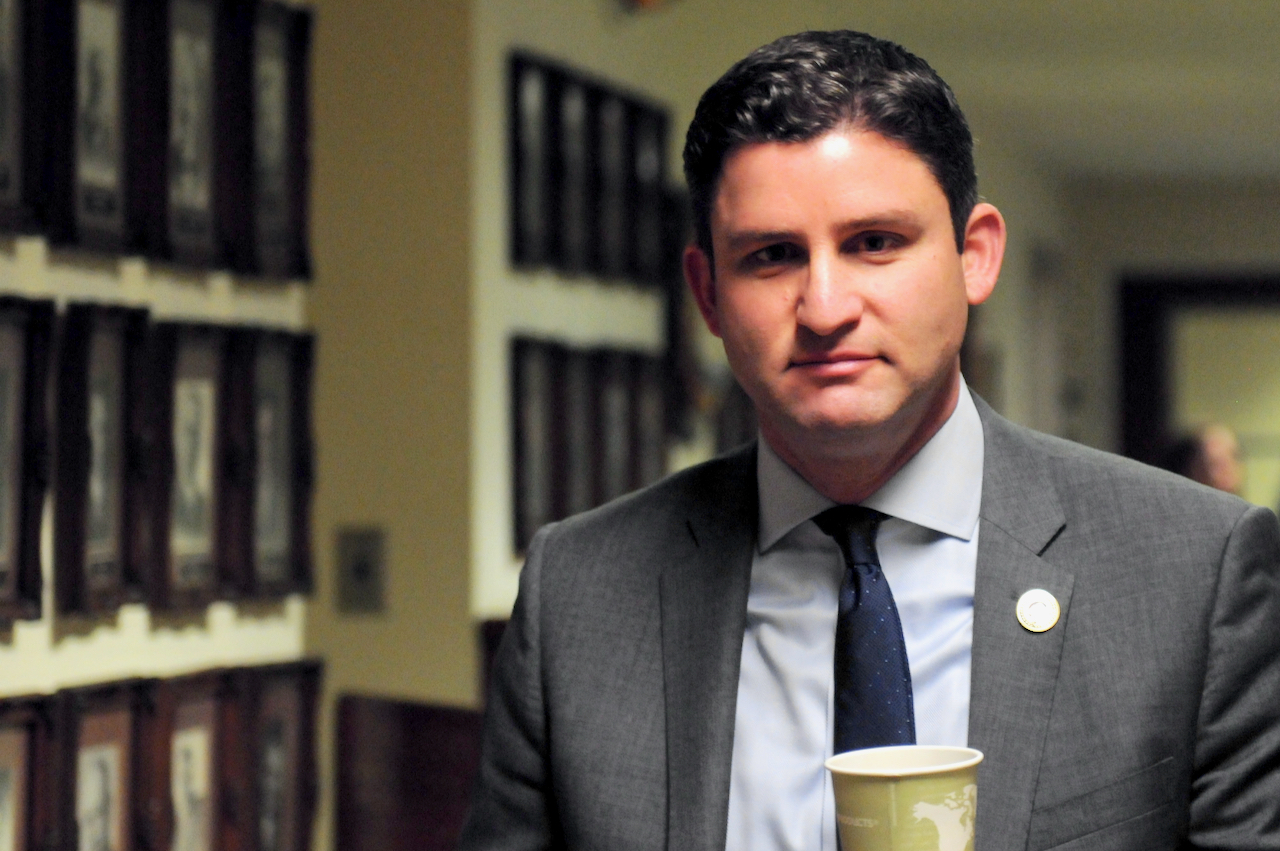
Assemblyman Jordan Cunningham. (Photo: Jordan Cunningham for Assembly)
Bill To Punish Social Media Companies For Addictive Features For Minor Users Killed in Senate
‘Social media companies had so much to lose from this bill’
By Evan Symon, August 12, 2022 2:30 am
A bipartisan bill that would punish social media companies for having addictive and harmful features for users under the age of 18 was was killed in the Senate on Thursday, ending hopes this year for social media addiction legislation in California.
Assembly Bill 2408, authored by Assemblyman Jordan Cunningham (R-Paso Robles) and Assemblywoman Buffy Wicks (D-Oakland), proposed to hold social media companies responsible for addicting children under the age of 18 to their services and would impose a duty not to addict as well as prohibit the use and sale of a child’s personal data. The bill, also known as the Social Media Platform Duty to Children Act, would allow the legal guardian of the child who suffers injury due to the addiction to sue the companies, which includes a civil penalty of up to $250,000 per violation.
AB 2408 would cover all social media features created before January 2023. Only social media companies that make $100 million or more in gross revenue in the past year would be covered by the bill. Streaming services such as Netflix, Hulu, or Disney+ would not be covered, with the same exemption ruling out companies that only offer e-mailing or texting services, as well as services whose primary functions allow users to play video games, due to their everyday and emergency uses.
If it passed, companies would either have had until April of next year to remove the features addictive to those under 18, or conduct regular audits to find any parts of their service being addictive and taking action to not be held liable.
While both Assemblymembers wrote the bill due to studies showing the rise of social media addiction in teens, recent social media company whistleblowers coming forward with information showing how addictive it can be, and growing concern among parental and advocacy groups that social media is growing less safe for kids, social media companies lobbied hard against the bill.
Most notably, Meta (which owns Facebook and Instagram), Twitter, Snap (which owns Snapchat), and TikTok spent millions in their individual lobbies due to the potential of losing millions more as well as losing users under the age of 18.
“Social media companies had so much to lose from this bill,” explained Sharon Ireland, a social media consultant, to the Globe on Thursday. “They all agree that addiction is an important issue to tackle, but they also didn’t want to be chopped off at the knees because of it.”
AB 2408 killed in Senate
In May, Assemblyman Cunningham explained that the bill was about protecting kids as no national action or action by the companies themselves had been implemented yet.
“The era of unfettered social experimentation on children is over and we will protect kids,” said Assemblyman Cunningham. “The issue that we’re trying to address is there’s really no incentive for these social media companies to do anything different than what they’ve been doing. D.C. isn’t taking action on this. There’s bipartisan agreement that something needs to happen. But guess what’s coming out of Washington? Nothing. California can lead the way here.”
AB 2408 had an unusual voting record since being introduced this year. While it passed the Assembly and made it through one Senate committee, Republicans and Democrats were with each other on both sides, either voting to pass the bill or not voting on the measure rather than say no. Republicans in favor of social media companies as well as Democrats from the Bay area largely split from those in favor of those taking the more hardline stance of protecting kids online.
Earlier this month the bill was placed on the suspense file. On Thursday, a quick vote killed the bill, ending the effort for at least the rest of the year.
While social media companies celebrated, Cunningham noted that kids would still be harmed in the meantime and said that voters would have likely supported the bill if it was up to them.
“I am extremely disappointed,” said Cunningham. “The bill’s death means a handful of social media companies will be able to continue their experiment on millions of California kids, causing generational harm.”
“This idea would be overwhelmingly supported if presented directly to the voters, as it would be prohibitively expensive for social media companies to take every California voter on a Tech Caucus junket in Napa.”
???? from @Cunning_Jordan on social media liability dying:
“This idea would be overwhelmingly supported if presented directly to the voters, as it would be prohibitively expensive for social media companies to take every California voter on a Tech Caucus junket in Napa.”
— Jeremy B. White (@JeremyBWhite) August 11, 2022
However, social media experts added that despite the bill being killed on Thursday, more like it in states nationwide, including California again, are likely in the coming years.
“They are going to hit that wall at some point,” added Ireland. “It’s just a matter of which state is going to pull the trigger on it first.”
As of Thursday, it is unknown if a successor bill will be tried again next year.
- Bill to Require Law Enforcement Disclosure if AI Was Used To Help Write Reports - August 7, 2025
- Gov. Newsom Files FOIA Request To ‘Expose True Cost’ Of L.A. Federal Troop Deployment for Anti-ICE Riots - August 6, 2025
- California Redistricting: How Newsom’s Plan Will Demolish Hard Fought GOP Gains - August 6, 2025





It’s ironic, or something, that woke legislators wanted to use punishment to control the media. Isn’t that the sort of thing they complain about all the time?
There must be better ways to limit addictive viewing. Using IP addresses to limit the number of messages, for instance.